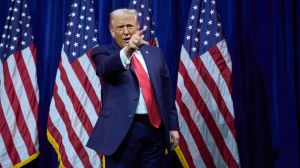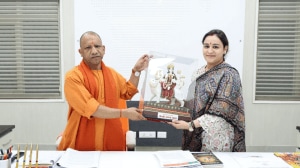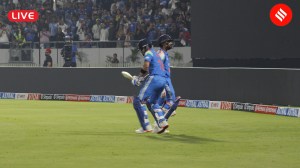Dreams and nightmares
The mountains of Kargil cast their shadow on the ramparts of the Red Fort. Independence Day addresses have traditionally turned the natio...

The mountains of Kargil cast their shadow on the ramparts of the Red Fort. Independence Day addresses have traditionally turned the national gaze inwards, on the challenges of nation building, on the hopes of ordinary people for a better existence. On Sunday, in marked contrast, the dominating theme in Atal Behari Vajpayee8217;s Independence Day address, as indeed that of President K.R. Narayanan8217;s a day earlier, was that of national security.
This was, perhaps, inevitable given the fact that a little over a month ago India was deep in the midst of a dangerous and protracted battle to protect its borders, one that was waged in the most inhospitable of terrains and which had claimed many young and promising lives.
It is only right then that Independence Day should become an occasion to remember these men with gratitude and sorrow for the sacrifices they, and their families, have made for the nation, and to introspect on national strategic and military objectives. But there is a certain tragedy about thistoo.
Fifty-three years ago both India and Pakistan became free amidst the fervent promises of their leaders to bring about peace and everlasting friendship on the subcontinent. Today that promised friendship between two nations which have already waged four wars remains a chimera.
There may not be open conflict at the borders at the moment, but neither is there an open trust, or even the hope that fresh hostilities will not break out at some future date. The Pakistani Prime Minister, Nawaz Sharif, in his Independence Day address on Saturday, did a fair amount of sabre-rattling, even as he spoke about his nation8217;s commitment to peace. 8220;If war is imposed on us, we will not be found wanting,8221; he promised. Vajpayee, in his address, acknowledged that his Lahore bus diplomacy had failed. 8220;We had gone to Pakistan with a message of peace. But what we got in return was Kargil. Islamabad betrayed our faith,8221; was the burden of his words. He went on to observe that no meaningful talks can take place in anatmosphere of Pakistan-supported terrorism.
A helicopter hovering over the Red Fort, which saw security arrangements at an unprecedented scale for the Independence Day ceremonies, symbolised a threat perception that belied any early return to normalcy, as did the bomb blast in Udhampur that killed three policemen.
Yet it is normalcy that people in both countries crave for, so that they can carry on with their lives and make their own trysts with freedom, without fearing the terrorist8217;s bomb or the foxholes at the border. The freedom promised 53 years ago has remained an unfinished project in both countries.
Vajpayee told the nation on Sunday that he has a dream, a dream of an India which is free of hunger, fear, illiteracy and poverty. It may not surprise him to know that Rajendra Prasad, the first President of independent India, had the very same dream, so many years ago. Speaking on August 15, 1947, Prasad enunciated India8217;s commitment to her people clearly. 8220;To all we give the assurance that it willbe our endeavour to end poverty and squalor and its companions, hunger and disease, to abolish distinctions and exploitation and to ensure decent conditions of living.8221;
- 01
- 02
- 03
- 04
- 05































